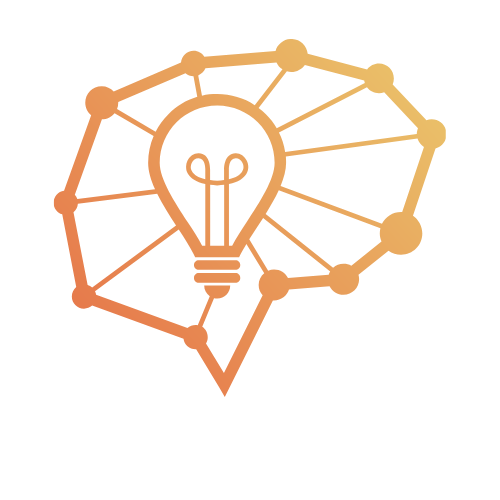Table of Contents
ToggleIn a world where pajamas are the new business casual, remote SaaS jobs are stealing the spotlight. Imagine a career where your office is wherever you want it to be—whether that’s your cozy couch or a beach chair with a piña colada in hand. The Software as a Service industry is booming, and with it comes a treasure trove of opportunities for tech-savvy professionals ready to ditch the daily commute.
But it’s not just about the freedom to work in your slippers; it’s about diving into a field that’s redefining how businesses operate. With companies embracing cloud technology faster than you can say “subscription model,” remote SaaS jobs are not just a trend—they’re the future. So buckle up as we explore the exciting landscape of remote opportunities that could have you working from anywhere while still making a difference in the tech world.
Overview of SaaS Jobs Remote
SaaS jobs remote encompass various roles within the thriving cloud technology sector. Professionals in this field enjoy the benefits of flexibility and autonomy. They can perform tasks from diverse locations, enhancing work-life balance. Positions range from software developers to support representatives, catering to a wide skill set.
Companies in the SaaS industry often prioritize a results-driven approach. These organizations seek candidates who can demonstrate adaptability and effective communication skills. Remote work allows teams to collaborate efficiently across time zones, fostering creativity and innovation.
Data reveals that the demand for remote SaaS roles continues to rise. A report shows that remote job postings in the tech sector have increased by 30% over the last three years. Many professionals now prefer remote positions, valuing the opportunity to eliminate commutes and manage their own schedules.
Skills in cloud computing, cybersecurity, and user experience design are particularly sought after. Employers look for expertise that enhances customer satisfaction and streamlines operations. Continuous learning and professional development are crucial in this fast-paced environment, encouraging individuals to stay updated with industry trends.
Job seekers should explore various platforms specializing in remote positions. Websites such as LinkedIn, Glassdoor, and specialized job boards offer numerous listings tailored to SaaS professionals. Networking within the industry can also lead to hidden opportunities, providing an edge in the competitive job market.
Benefits of Remote SaaS Jobs

Remote SaaS jobs offer distinct advantages that enhance both personal and professional life. These roles support a flexible lifestyle and contribute to overall satisfaction.
Flexibility and Work-Life Balance
Flexibility stands out as a primary benefit of remote SaaS jobs. Employees enjoy the freedom to create their own schedules, leading to a more personalized work environment. Many professionals find that this autonomy translates into increased productivity. Balancing family commitments or personal projects becomes simpler when the office is just a few steps away. With a 30% rise in remote job postings recently, companies recognize the need for results-driven teams over traditional hours. Professionals appreciate how remote work aligns with their lives, enabling them to thrive both at home and in their careers.
Cost Savings
Cost savings are another significant perk of remote SaaS roles. Commuting costs vanish, leaving professionals more financially secure. Many also note reductions in daily expenses like meals, clothing, and transportation. Remote workers tend to spend less on work-related activities, which can amount to substantial savings over time. With the growing trend towards remote positions, individuals can redirect these funds toward personal investments or experiences. Companies that facilitate remote work enhance employee satisfaction while lowering overhead costs, creating a win-win scenario for both parties.
Popular Remote SaaS Job Roles
Remote SaaS job roles span various fields, each offering unique opportunities. Below are key positions that exemplify the diversity and demand within this industry.
Software Developer
Software developers play a vital role in creating and maintaining SaaS applications. They design, code, and test software, ensuring functionality aligns with user needs. Many developers focus on specific programming languages, such as JavaScript or Python, to meet project requirements. Companies often prioritize candidates with experience in cloud environments and agile methodologies. Work flexibility allows developers to collaborate seamlessly with teams around the globe. Individuals in this role typically engage in continuous learning to stay updated on evolving technologies.
Product Manager
Product managers oversee the development lifecycle of SaaS products. They serve as the bridge between technical teams and stakeholders, defining product vision and strategy. Responsibilities include gathering user feedback, analyzing market trends, and prioritizing features. Effective product managers focus on understanding customer needs to enhance user experience. Time management becomes essential as they juggle competing priorities within tight deadlines. Through collaboration and clear communication, they drive projects to successful launches. Organizations highly value product managers who demonstrate adaptability in a fast-paced environment.
Customer Success Manager
Customer success managers ensure clients achieve their desired outcomes with SaaS products. They proactively engage with users to provide support and gather feedback, enhancing overall satisfaction. Building strong relationships fuels retention and upselling opportunities. Many professionals excel in this role thanks to their empathy and problem-solving skills. By analyzing customer data, they identify trends that inform product improvements. Working closely with development teams allows them to advocate for user needs effectively. Organizations recognize the importance of this role in promoting long-term customer loyalty and growth.
Skills Required for Remote SaaS Jobs
Remote SaaS jobs require a blend of technical and soft skills to excel in a dynamic environment. Meeting the industry’s challenges necessitates both sets of abilities for effective performance.
Technical Skills
Proficiency in cloud computing platforms stands as a key requirement. Professionals often need expertise in programming languages such as Java, Python, or JavaScript. Familiarity with front-end and back-end technologies enhances their marketability. Experience with APIs and integrations enables seamless collaboration and functionality within applications. Knowledge of cybersecurity principles maintains data security and compliance standards. Understanding user experience (UX) design principles improves product usability and customer satisfaction. Lastly, familiarity with tools like Jira or Trello aids project management and workflow coordination.
Soft Skills
Adaptability emerges as an essential soft skill for remote SaaS roles. Professionals must navigate changing priorities in a fast-paced industry. Strong communication skills foster collaboration across diverse teams. Problem-solving abilities enable employees to address challenges swiftly and efficiently. Time management helps individuals balance multiple tasks and meet deadlines. Initiative and self-discipline empower professionals to work effectively without direct supervision. Additionally, emotional intelligence fosters healthy team dynamics and enhances customer relationships.
How to Find Remote SaaS Jobs
Finding remote SaaS jobs involves several effective strategies that maximize opportunities in this growing field. Professionals can navigate job boards and leverage networking methods to successfully secure positions.
Job Boards and Websites
Job boards offer a straightforward way to discover remote SaaS listings. Platforms like LinkedIn, Glassdoor, and Indeed are popular for remote job seekers. Specific sites dedicated to remote work, such as Remote.co and We Work Remotely, cater exclusively to this market. Users can filter searches by skill set or job type, ensuring relevant results. Many companies also post openings directly on their websites, emphasizing the flexibility and diverse roles available. Regular monitoring of these platforms increases chances of landing desired jobs.
Networking and Referrals
Networking holds significant potential in uncovering hidden job opportunities within the SaaS sector. Engaging in industry-specific groups on platforms like LinkedIn can facilitate valuable connections. Attending virtual conferences and webinars exposes professionals to industry leaders and potential employers. Referrals often lead to quicker hiring processes, as recommendations from trusted sources carry weight. Building genuine relationships with peers can enhance visibility in the job market. Participating in online forums and discussions further positions individuals as knowledgeable candidates, increasing their chances of success.
The remote SaaS job landscape is thriving and offers numerous opportunities for professionals seeking flexibility and autonomy. With the industry’s growth and the increasing demand for skilled individuals, those equipped with the right technical and soft skills stand to benefit significantly.
As remote work becomes a staple in the tech sector, job seekers can leverage various platforms and networking strategies to uncover exciting positions. Embracing continuous learning and adaptability will ensure they remain competitive in this dynamic field. The future of work in the SaaS industry is bright, making it an ideal time for individuals to explore remote opportunities that align with their career goals.





